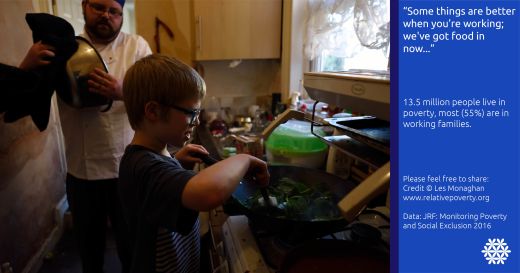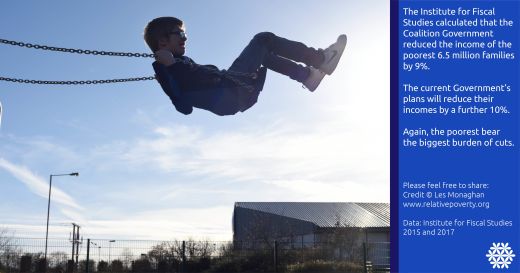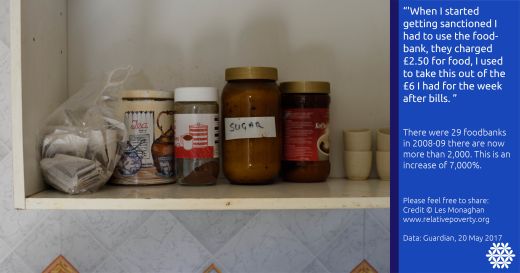The stories in Relative Poverty address the imbalance of power; Les Monaghan describes the thinking behind his photographs.
Author: Les Monaghan
First you’ll close your eyes to the pictures
Then you’ll close your eyes to the memory
Then you’ll close your eyes to the facts
Then you’ll close your eyes to the entire context.The Inextinguishable Fire by Harun Farocki, 1969
In April 2016 the Joseph Rowntree Foundation published a report highlighting the (then) 1.25 million UK citizens in destitution - that is 1.25 million people who choose between eating and heating. This shocking report was picked up by only a few of the national papers and was barely mentioned in the mainstream media.

The UK’s destitute do not fit with what Philip Jones Griffiths called the media enforced ‘standard view’ of the world. I believe that the media invisibility enables the government to continue its neglect.
I chose to photograph those who are not street homeless (who are at least visible) and sought families behind closed doors.

These are people who are all around us (1.25 million is more than the population of Birmingham), but you won’t see them on the bus (they walk), they do the unseen jobs, or are housebound. I wanted to use photography to lift the cloak of systemic and wilful invisibility. As I worked with the families I learnt that they were all in destitution as a result of government policy.

Alongside the photographs I highlight which of these policies affects each family. Ariella Azoulay believes it is our obligation to act when we see photographs of others in pain. And these families are enduring what John Berger once called the pain of the world - that of living with no money. Once you have seen the photographs you can act by seeking to remove the policies this government utilises in its war on the poor.
The stories in Relative Poverty address the imbalance of power, please do not close your eyes.
The publisher is the Centre for Welfare Reform.
Relative Poverty © Les Monaghan 2018.
All Rights Reserved. No part of this paper may be reproduced in any form without permission from the publisher except for the quotation of brief passages in reviews.
community, politics, social justice, England, Article